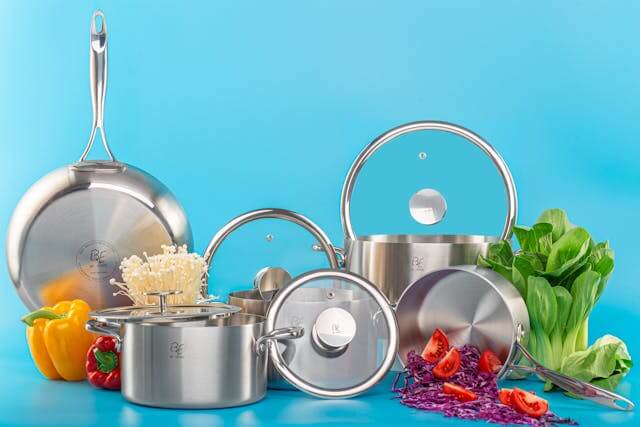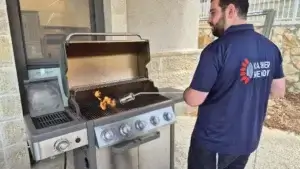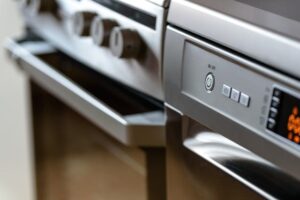Koshering kitchen utensils is an essential process in Jewish law, particularly before Pesach and in cases where utensils have become non-kosher. This article provides detailed instructions on how to kosher pots and pans according to halacha, covering metal, glass, earthenware, Teflon, and other materials, ensuring a properly koshered kitchen for Pesach.
1. General Principles of Koshering Utensils for Pesach
A. “As It Absorbs, So It Releases”
A utensil absorbs flavors according to how it is used, so it must undergo a similar koshering process to release those flavors. This principle is crucial when koshering pots and pans for Pesach, ensuring that no chametz flavors remain.
B. Waiting 24 Hours (“Not Used Within a Day”)
A utensil containing absorbed flavor that has not been used with hot food for 24 hours is considered to have a spoiled taste, making it easier to kosher for Pesach.
C. Thorough Cleaning Before Koshering
Before beginning the koshering process, utensils must be thoroughly cleaned of all food residues, grease, and rust. Cracks and crevices where chametz or non-kosher substances may accumulate should be carefully inspected and cleaned. The Pesach kitchen must be completely free of chametz.
2. Koshering Pots for Pesach and Non-Kosher Utensils
A. Metal Pots (Stainless Steel, Aluminum, Cast Iron)
Koshering for Pesach:
Clean the pot thoroughly, ensuring the removal of all dirt and food residue, especially before Pesach.
Wait 24 hours without using the pot for hot food.
Kosher the pot by boiling water (hagalah) – submerging it in boiling water, or alternatively, filling it with water and bringing it to a rolling boil.
It is mandatory to pour boiling water over the handles and any areas exposed to chametz, particularly before Pesach.
In some cases, additional pouring of boiling water immediately after hagalah is practiced.
Koshering from Non-Kosher Use:
If non-kosher food was cooked in it, koshering follows the same hagalah process.
If the pot was used directly over a fire (without water), intense libun (burning) is required – heating it until it reaches approximately 400°C (750°F).
B. Frying Pans for Pesach
Uncoated Frying Pans (Cast Iron, Stainless Steel, Aluminum):
Clean thoroughly and wait 24 hours.
Koshering requires intense libun – heating the pan over a direct flame.
Teflon-Coated Frying Pans:
Koshering Teflon-coated frying pans is challenging, and many avoid using them for Pesach altogether.
If koshering from non-kosher use, consult a halachic authority. Typically, a strong heating process is required, which may damage the coating.
C. Glass Pots and Pans (Pyrex, Corningware, Graniteware)
According to the Shulchan Aruch, glass does not absorb flavors, so washing with soap and water is sufficient for Pesach.
Ashkenazic tradition holds that it cannot be kashered. However, in exceptional cases, it may be kashered by immersing it in cold water three times for 24 hours each.
D. Earthenware and Ceramic Pots
Earthenware pots cannot be koshered according to halacha, as they absorb flavors and do not release them completely.
Therefore, for Pesach or when dealing with non-kosher utensils, they must be replaced.
3. Koshering Lids, Handles, and Rubber Seals in the Pesach Kitchen
Lids made entirely of metal can undergo hagalah.
Lids with rubber or plastic parts require rabbinic guidance to determine if they can be koshered or need replacement.
Wooden handles must be inspected to ensure they are free of food residue and can be thoroughly cleaned before hagalah.
Conclusion
Koshering pots and pans is a necessary process to maintain a kosher Pesach kitchen, whether in preparation for the holiday or for utensils that have become non-kosher. Proper koshering requires thorough cleaning, a 24-hour waiting period, and performing the appropriate koshering method according to the utensil’s material and use. In case of doubt, it is always advisable to consult a knowledgeable rabbi.
Wishing you a kosher and joyful Pesach!
Nachman Harris. Kosher Expert.
Available for any of your questions






